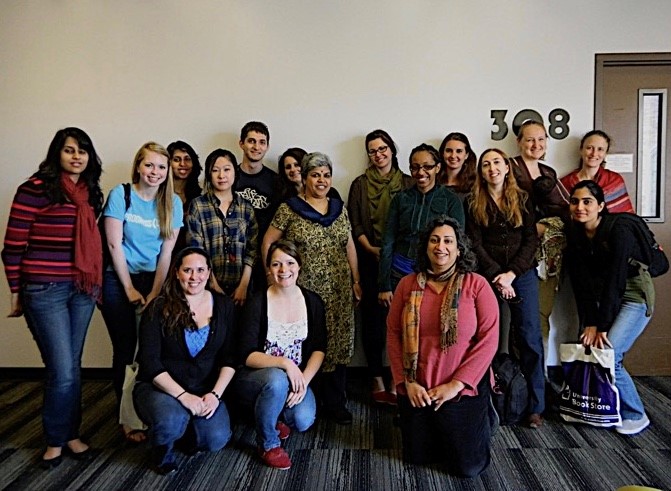Graduate students who are interested in global mental health can get involved in several ways:
- Take courses pertaining to global mental health
- Explore majors and minors in global health, with focuses in global mental health
- Join us for Global Mental Health Journal Club

Provides students with both a theoretical foundation in qualitative approaches to research in public health and in-depth training in qualitative research design, methods, and proposal development. Focuses on how to frame research questions, design appropriate research strategies, conduct interviews, gather other qualitative data, write proposals, and analyze data. Students should prepare by identifying a topic for a research project proposal. Offered: jointly with ANTH 519/HSERV 521; Sp, even years.
Examines the socio-cultural and political forces that impact assessment, manifestation, and treatment of mental illnesses worldwide. Students take a critical view of diagnostic systems and examine cultural differences in presentation of mental illness. Also reviews treatment practices in low resource settings, cultural-specific communication, and stigma. Offered: Au.
Examines the socio-politico-cultural forces that give rise to violence and the impact of violence on population health. Discusses public health methods, policies, and interventions that can be used to decrease the occurrence and severity of violence in real world circumstances, including countries at all economic levels. Offered: Sp.
Community Based Participatory Research (CBPR) has received growing attention in the areas of public health, community development, urban planning, education, social work, nursing, sociology and anthropology. CBPR begins with a research topic of importance to the community with the aim of combining knowledge and action for social change. It provides an understanding of principles and strategies, an appreciation of its advantages and limitations, and skills for participating effectively.
Surveys topics on mental health and treatment of racial and ethnic minorities. Theory emphases include: models addressing ethnic identity, cross-cultural differences, models of culturally sensitive intervention. Practice emphases include unique psychotherapy strategies for: African-, Asian-, and Latino-Americans, and American Indians. Prerequisite: graduate clinical major standing in psychology, or permission of instructor. Offered: Sp.
Using epidemiological methods to study mental illness. Topics include contributions of mental illness to global disease burden; major population-based studies of mental illness; measurement of psychopathology; culture and mental illness; role of neurodevelopment, genetics, social and physical environment in etiology of mental disorders; mental health services research. Prerequisite: either EPI 511, EPI 512, HSERV 591, or permission of instructor. Credit/no-credit only. Offered: jointly with PBSCI 546.
